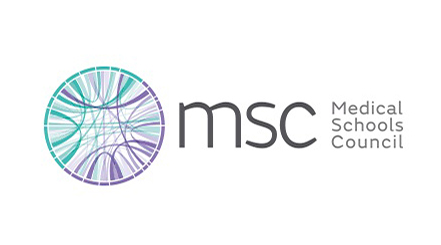Scotland’s medical research celebrated in new publication
11.06.15
The Board for Academic Medicine and Medical Schools Council have joined together to publish Health of Scotland: The international impact of Scottish medical schools. This publication showcases the world-leading medical research produced by Scottish universities and presents a clear case for continued investment in medical research across the UK.
Scotland has a well-established and distinctive biomedical research sector which builds on an impressive history of medical discovery. The MRI scanner and first diagnostic use of ultrasound were developed in Scotland, while Scottish physicians are credited with the discovery of penicillin, insulin, and invention of the modern hypodermic syringe.
The recent Research Excellence Framework showed that this tradition has endured. Submissions from Scottish universities included pioneering work in treatment of cardiovascular disease, cancer, diabetes, and infectious disease. This research has had demonstrable impact, improving patient care while saving the NHS millions of pounds, in addition to the enormous amount it contributes to the UK economy. The case studies in Health of Scotland come from the five universities with medical schools in Scotland, demonstrating the biomedical research sector’s impact across the UK and the world.
The foreword is provided by Professor John Iredale, Regius Professor of Medical Science & Vice Principal Health Services, University of Edinburgh. He says:
‘It’s well known that Scotland’s medical research punches above its weight in terms of output and this publication shows the stories behind that claim. These medical schools win significant investment from UK funders because they are world-class institutions, their work feeding back into the UK economy through their advancements. This means that Scottish research is stronger for having access to UK funders just as the UK is stronger for the contribution of these outstanding medical schools.’
Professor Iain Cameron, Chair of the Medical Schools Council, says:
‘Following the publication of Health of the Nation in February, which included examples of the impact of medical research across the UK, Health of Scotland focuses on one nation to show a sector that is strong in its diversity and its potential to build expertise across the four nations. The Medical Schools Council is proud to have worked with the Board for Academic Medicine to create this timely publication.’
Sir David Carter, Chair of the Board for Academic Medicine, says:
'The Board for Academic Medicine is proud of the outstanding performance of Scotland's five medical schools in the recent Research Excellence Framework. This Health of Scotland publication provides a glimpse of the broad range of Scotland's current biomedical research endeavour and illustrates the important contribution that our talented clinical academic workforce is making to improve the nation's health and health services.'
Health of Scotland: The international impact of Scottish medical schools can be accessed here.
-ENDS-
Notes for editors:
- The Medical Schools Council represents the interests and ambitions of UK medical schools as they relate to the generation of national health, wealth and knowledge through biomedical research and the profession of medicine. For further information about the work of the Medical Schools Council, see www.medschools.ac.uk.
- The results of the Research Excellence Framework were published on the 18th of December 2014. Information and results can be found on this website: www.ref.ac.uk.
- For more information on this press release, please contact Edward Knight, Communications and Website Officer, on 020 7419 5427, or edward.knight@medschools.ac.uk

